Godfathers - Interview
by John Clarkson
published: 11 / 1 / 2008
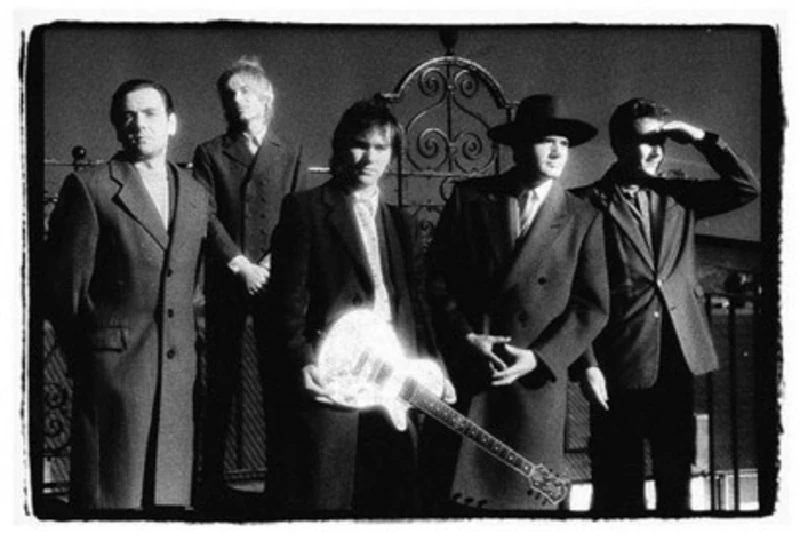
intro
John Clarkson speaks to Peter and Chris Coyne from 80's new wave/rock 'n' roll group the Godfathers about their band and their decision to reform the classic original line-up of the group after a nearly 20 year absence
The Godfathers were by their own definition "the greatest rock 'n' roll band in the world." Many other acts, both good and bad, before and since them, have made similar proclamations. Yet few other groups have ever been able to match the Godfathers for passion or intensity, and in their heyday this claim, far from being just another idle and crass boast, had a large dollop of truth to it. In the era between 1985 and 1989 when the original and best known line-up of the Godfathers, which consisted of vocalist Peter Coyne, his bassist brother Chris, guitarists Kris Dollimore and Mike Gibson and drummer George Mazur, were together, the musical landscape was largely bleak. The punk and post-punk movements were long dead. Chart records had begun their 20 years downward spiral, their hits becoming steadily more formulaic and forgettable, while stadium rock in contrast was on the rise, making acts such as Bruce Springsteen, U2 and Simple Minds seem increasingly remote and inaccessible. In the independent and alternative sector things were no better. The C86 movement was overly precious and quaint, while the Madchester and Goth scenes all too often produced bands which were indistinct and replicants of one another. The Godfathers were essentially a new wave outfit but also had an encyclopediac knowledge of 50's rock 'n' roll, 60's guitar bands and classic country records and in this barren panaroma were, alongside the Prisoners and the Jesus and Mary Chain, a unique force in late 80’s British rock, their fierce gutsiness and anthemic sound providing a much needed contrast and freshness to the otherwise flaccid scene. While the Godfathers had no chart hits in their own country, they always had a huge live audience. They attracted a fervent following both at home and aboad, but also drew much controversy. The band's habit of wearing suits on stage drew the London-born Coynes inevitable accusations of trying to emulate the infamous gangster twins, the Krays, while its members' outspokeness proved an often further cause for contention. Sleeves for two of their records, an early pressing of a single, 'Cause I Said So', which had a Warhol-style picture of Margaret Thatcher wearing a Hitler moustache on it, and an album, 'More Songs about Love and Hate', which featured a photo on its cover of Richard Burton and Elizabeth Taylor, were both banned, the former before it even reached the shops by record label CBS, the latter everywhere across the world except Britain. The Godfathers were born in 1985 out of the ashes of Peter and Chris Coyne's previous group, the Sid Presley Experience, which was infamous for its' members in-fighting, as much for putting out two fine singles, 'Hup 2-3-4', and a cover of the John Lennon single, 'Cold Turkey'. They released three early singles, 'Lonely Man', 'This Damn Nation' and 'Sun Arise'. They then compiled these and their B sides , along with another cover of 'Cold Turkey', on their 1986 debut album, 'Hit by Hit' , which like the singles was released on their own Corporate Image label, before signing to CBS. The group's second album, 'Birth, School, Work, Death', the title track of which was a Top 40 Billboard hit in America, came out in 1988, and then 'More Songs about Love and Hate' the following year. As the 80's came to an end and the 90's began, the Godfathers' fortunes began to wane. Vic Maile (Motorhead, Dr Feelgood, the Tom Robinson Band), the producer of all three of their albums and “the sixth Godfather”, died in July 1989 of cancer, shortly after completing work on 'More Songs about Love and Hate'. Kris Dollimore left the band too at the end of that year. Mazur also quit in 1991, shortly after the Godfathers' released their fourth album and final record for CBS, 'Unreal World', and then soon afterwards Gibson departed from the group as well, his swansong being the band's only live album, 'Dope, Rock 'n' Roll and Fucking in the Streets' which was released on Corporate Image in 1992. The Coynes carried on , playing to diminishing audiences and with erratic line-ups , and released two final studio albums, ' 1993' s 'The Godfathers' and 1995's 'Afterlife', both on the German label Intercord, before the group finally petered out towards the end of the decade. Rumours that the Godfathers were about to reform have circulated for some years. They were finally confirmed at the end of last year when Peter Coyne announced on the band's MySpace site that the original line-up of the band would be playing its first annual St Valentine's Day Massacre show , an annual event in the late 80's and 90's in the group’s native London, at the Forum on the 14th February. Some Spanish and Greek dates will also be taking place, but Coyne has also said that, while it remains to be seen whether the group will return for “ five concerts or fifty concerts”, he and the other four members of the group will be only “breathing new life back into (their) magnificent beast of a band for a limited period in time.” With 'Hit by Hit' also about to be released on Corporate Image in a new double CD edition with extra tracks featuring live and radio sessions, Peter and Chris Coyne took time away from rehearsals for the group to speak to Pennyblackmusic about the Godfathers and why they have decided to revive the band together now. PB : You grew up in a large Catholic family with lots of brothers and sisters. Was it a musical family ? PC : Our Dad played Irish accordion, and his sisters and brothers all played instruments. CC : Dad would play all these old folk tunes from the West of Ireland. He would have sessions around the house and his mates would come around. PC : No one else in the family really played music. We did have lots of older brothers and sisters and they all used to bring their records back home with them. The girls used to bring back Tamla Motown and reggae and the Beatles, and the boys used to bring back heavier stuff like Cream and Hendrix. PB : Which numbers in the family were you ? CC : He is number eight and I am number nine. PC : Chris and I then started eventually getting into our own sort of music. The first record I bought was ‘Virginia Plain’ by Roxy Music. Roxy Music and David Bowie, who we were also into, were influenced by the Velvet Underground and Iggy Pop, and so from Roxy Music and David Bowie we started working back. We would think, “Who are these people ?” and then we would start listening to them as well. Then punk rock happened, and Chris and I were around about the right age for that, and we started getting into that too. PB : You also worked as a music journalist, Peter, didn’t you ? PC : I did. I used to write for ‘Record Mirror’ and ‘Zigzag’. That was between 1980 and 1982. A lot of the music scene was very, very boring at the time, and I thought to myself, “I’ll try and do better myself”, and, while I had no prior experience of playing in groups, that was where the whole idea of starting a band and the Sid Presley Experience came from. PB : What about you, Chris ? How you played in other bands before ? CC : I had been in other groups before. I had played the saxophone. PB : The Sid Presley Experience was notorious for its in-fighting. Was that fighting as bad as it has been sometimes portrayed ? PC : Yeah, sometimes it was. We attracted lot of interest straightaway. We sent out our first single, ‘Hup 2-3-4’, out on a Tuesday and it was on Radio 1 on the Thursday and then we had a session there on the Friday and then very shortly after that we were on ‘The Tube’. Everything became unstuck really quickly after that. The other two guys, Del Bartle and Kevin Murphy-God bless them now. There’s a lot of water under the bridge-thought, because we were so successful straightaway, that they were Led Zeppelin. You’ve got to put work into it before you can live up to a band like that and they didn’t, so there was a lot of fighting about that. There was one time when we played Dingwall’s and we had ZTT Records - Trevor Horn and Paul Morley - come down to see us. We had a big punch up before we went on stage. We had a punch up on stage and a punch up afterwards. They wanted something provocative, a little bit edgy and a little bit dangerous, but they didn’t want the real thing (Laughs). They couldn’t handle it and at the end of it nor could Chris and I, so that is why we split that band up and started another one which became the Godfathers. PB : Originally the Godfathers were going to be a new version of the Sid Presley Experience, weren’t they ? PC : We were going to keep the name, but it all went to court and then the judge in his infinite wisdom said, “No, boy. You shall not be called the Sid Presley Experience. Go out and find yourself another name.” He said that to both parties. CC : It was a shame really because Sid Presley was my nickname when I was a kid. It was a bit of a bummer to think of a name like that for a group and then not be able to use it. PB : Why did they call you Sid Presley ? CC : Because I looked like Elvis. I had a quiff for a while. PC : We got the Godfathers’ name from ‘Halliwell’s Film Guide’. We started looking through it for inspiration and we thought, “That sounds powerful and it sounds smart. We’ll have that.” CC : We just started flicking through the book and picking names out at random. It was the second name we found. The first name was 'The Midwich Cuckoos'. There was probably more to be had in that name (Laughs), but there you go... PB : The Godfathers seemed to be a band to pick up your point about the problems with the Sid Presley Experience that had a really strong work ethic right from the beginning. Did you hold down regular jobs in the early days of the group or did it become straightaway your main focus ? PC : It was our main focus right from the start. We wanted to start playing straightaway so we played three or four gigs in the UK in the first month or so, and then shortly after that we went to the States for another four dates. CC : We had booked to go the States with the Sid Presley Experience. We had a contractual thing at the time and the judge decided that Del and Kevin could do the remaining Sid Presley bookings in England and we could do the gigs in America. PB : Where did the idea of the two guitars come from ? PC : In the Sid Presley Experience we had used just one guitar and we wanted to play live pretty much as we sounded on record. We wanted a bit more dynamism in the music really, so that was the whole idea behind the two guitars. It just made us sound a bit harder in our sound and more powerful and gave us a bit more interplay. PB : ‘Hit by Hit’ was essentially a compilation album of your first three singles. Why did you decide to put that out as your first album so early in your career ? Did you just want a record of your first year together basically ? CC : We were releasing records at that stage on Corporate Image, our own record label, and we couldn't afford to make an album right away, so we did it piece meal. We did the three singles and then the singles went towards the album and then we did a couple of extra songs and we had the album. PC : As soon as we had made our early records we deleted them. People couldn’t buy them outside the UK so we thought that we would put them together in a handy package. PB : Is it true that ‘This Damn Nation’ was about a friend of a friend who killed himself because he couldn’t find a job ? PC : Yes, it was. The Godfathers always dealt with the harsh realities of life and there was something evil in the air at that time, so we expressed that through our songs. ‘This Damn Nation’ and ‘Birth School Work Death’ talk about those times. Rock ‘n’ roll records however last forever. They are not just set in a time and place and ‘This Damn Nation’ is not just strictly about that period. It is about a situation that could happen in the wrong circumstances anytime, anywhere. PB : ‘Sun Arise’ was a cover of an old Rolf Harris song. It seems an unusual choice for a cover. How did that come about ? PC : We were doing a radio session and we thought that we would do something totally different, just for a laugh really. We all liked that song when we were kids so we decided to beef it up a bit. It went really well, and Vic Maile heard that we had done it and told us that he had always wanted to record that number with a rock band and so it ended up as a single and on ‘Hit by Hit’. PB : Vic Maile produced the first three Godfathers albums. How did you become involved with him ? PC : We asked him to. We chose him as our producer right at the start. We were looking for a producer and we thought that we would look at some record sleeves to see who had done what. We put on Motorhead and we thought “Blimey ! That sounds good, really powerful and exciting. Who produced that ? And of course it was Vic.” CC : It was the B side of ‘Ace of Spades’, a song called ‘Dirty Love’, that really convinced us that we should ask him to work with us. It sounded so loud and clear. It just really rocked, and we thought "If he can make a sound like that with our tunes, we've got something good here." PC : We phoned him up ,and then met him and he liked us and agreed straightaway to work with us. We would have stuck with him right until the end, but, of course, he died. He was a lovely guy and he certainly knew his rock ‘n’ roll music. He had worked with people like Joe Meek and Shel Talmy, who produced all those Who records and the Kinks and bands like that. CC : It was strange because before we met him I had expected this giant heavy metal type but he was very small, easy going, a really lovely bloke, a really lovely man. God rest his soul ! As much of the time we spent recording with Vic we spent chatting to him. He had loads of stories about all the bands and the people that he had worked with over the years . PB : You covered John Lennon’s ‘Cold Turkey’ as well for ‘Hit by Hit’. You had already done that with the Sid Presley Experience. Why did you decide to do it again with the Godfathers ? PC : We never felt that we did it properly with the Sid Presley Experience. Vic Maile again wanted to work on that number and we wanted to put something on ‘Hit by Hit’ that hadn’t appeared on the singles. That was the idea behind that one. We had also grown up listening to junkie rockers like Johnny Thunders and the Heartbreakers, but we didn’t want to be junkies ourselves. That was us doing a message song really. PB : When did the first St Valentine’s Day Massacre take place ? PC : It was at the Sir George Robey in Finsbury Park in 1986. That was the only time I used a sub machine on stage. PB : How the did the audience react when you came on with that ? PC : A lot of them hit the floor to be quite honest with you (Laughs). The sound was very, very loud. When you’re standing there on stage with a sub machine gun in hand it certainly takes people’s attention, much more so than a tambourine (Laughs). CC : I remember that I couldn’t hear anything for about a minute afterwards. My ears and my legs went and I turned to jelly. The sound of it completely took it over your body. PC : We did it because basically we were going to do the Sid Presley Experience instrumental, ‘Public Enemy Number One’, which has police car sirens on it and machine gun bullets ,and we just wanted to add something on top of it. CC: We had a strobe light on at the same time and everything was like in slow motion. Peter couldn’t control it. Those things have quite a kick on them and there were over 100 blanks in it. It just totally blew our ears. You can’t imagine what those poor bastards in the First World War went through hearing that sound plus cannon assaults. Jesus, it was great really (Laughs). PB : You seemed to be a group that was loved and hated in equal measure. You never seemed to mind being hated. Did you feel it was better to generate a reaction rather than to have no reaction ? PC : Definitely. Who cares what people think at the end of the day ? As long as we were happy and were making great records, I couldn’t have cared less what people thought about the band. I still don’t. When I’m six feet under, I’ll have time to worry about that, but I certainly don’t worry about it even now. It was great to be loved. The Godfathers can play anywhere in the world and we will have an audience there, a great audience who loves our music, and that is after 22 years. It is a testimony to our music and our sound, so to those who hated us fuck you and to all those who loved us thank you very much. We loved your support. Keep coming to see us. PB : Did you enjoy being so controversial ? PC : We didn’t try to be controversial. We could have been a lot more controversial if we wanted to.I don’t see ‘This Damn Nation’ , for example, as controversial. It is just finger- on-the-pulse rock 'n' roll music. PB : The band had a personality of its own. Did you spend a lot of time thinking about what you wanted that personality to be with your sound, your suits, your looks and the St Valentine's Day Massacre, or was that something which just evolved really naturally ? PC : It did evolve. I couldn't say that we had a masterplan from the very beginning, like we were going to do x and then we were going to do y. We just wanted to make great records and enjoy ourselves while we were doing it. PB : Why did you wear suits on stage ? Was it just image or were there other factors as well ? CC : I would have worn suits anyway. I think that it was that Irish Catholic Sunday best sort of thing. The Jesuits might not have got here, but the soul boy who was turning up for church on a Sunday certainly did. PC : I suppose it was an image if you want to call it an image, but I think our image as the Godfathers has survived. You look at all those bands in the 80’s and the early 90's and they look bloody terrible. If you look at a lot of bands now, however, they look just like the Godfathers did in 1986 and 1987. CC : I remember watching all these bands years ago like the Four Tops and the Temptations and Sam and Dave. They put on a show. There was something foxy and gaudy about them. I think people expect to see a show. They don’t want to see shoegazers or someone just standing there trying to earn a bit of money without making much effort. People come to a gig because they want to see something. Not to be bored. PC : We never liked bands who looked like the roadies. If you go on stage you want to put on a show and put on a performance for people. You don't see the Temptations going on stage in a scruffy T-shirt and jeans. PB : Inevitably any band with two brothers from London who came on stage wearing suits, were working class and had a mafia-style name were going to draw comparisons with the Krays. Did that begin to annoy you after a while or did it not bother you at all ? CC : I thought that it was quite funny really. The music papers could have been more precise though. The Krays were from Bethnal Green in East London. We are from Walworth near the Elephant and Castle and which is in South London . They would have probably been better comparing us with the Richardsons. PC : I couldn't say that it annoyed me. You've got to expect that sort of thing if you call yourselves the Godfathers. People were inevitably going to pick up on things like that. The whole idea of the suits I think was not to look threatening, but to look smart and to add a contrast to our music. We might have looked clean, but we sounded really dirty. We looked like this, but we sounded like that. PB : The title track of ‘Birth, School, Work Death’ was written just after Margaret Thatcher got back in for the third time, wasn’t it ? PC : Yeah. We did write about political stuff, but we weren't a political band. That would have been very, very boring. We never tried to tell people what to do. We just tried to tell people what we thought. If they agreed with us, great. If they didn't, great as well. PB : How do you feel about that album now, 'Birth, School, Work Death' ? Do you still like it ? PC : It is one of our best albums I think. CC : I like it too. It was the first album that we recorded properly. You can’t really describe ‘Hit by Hit’ as an album. I see it as more a series of happy episodes because it was recorded so piece meal. The other albums, however, were pure albums. We had got the deal with CBS by the time we recorded ‘Birth, School, Work , Death’ and we had the luxury to go in and do the songs we wanted collectively. PB : Where did the idea of putting Richard Burton and Elizabeth Taylor sleeve on 'More Songs about Love and Hate' come from ?. PC : Somebody asked Chris in an interview what the next album was going to be called and he said "I don't know. It will probably be ‘More Songs about Love and Hate.’” And, when the interview was published, we thought, "That's a very good title. That." We were looking for a cover for the sleeve and I saw Richard Burton and Elizabeth Taylor on the cover of 'Life’ magazine and they summed up perfectly that dynamic of love and hate and they were British of course,so we put them on the cover. We weren't allowed to put that album cover out in the United States or anywhere else in the world, just in the UK. It came out with a shot of the band everywhere else. PB : That album has got 'Walking Talking Johnny Cash Blues' on it. You never released that as a single, did you ? PC : No, we should have done, but we were so into putting out quality records that we put out as a single 'She Gives Me Love' as the A side, 'Walking Talking Johnny Cash Blues' as the B side and 'Just Because You're Not Paranoid Doesn’t Mean that They are Not Going to Get You' as an extra track on the 12" . That was a very strong buy really, but in hindsight we should have put 'Walking Talking Johnny Cash Blues' out as a single. PB : It was always a live favourite, wasn't it ? PC : Yeah. That song was picked up all over the world straightway by our audience. Johnny Cash has become cool again since he started making records with Rick Rubin. You started getting a lot of people getting back into Johnny Cash, but he never went out of fashion as far as we were concerned. We thought that he was great. When we signed to CBS, the first thing they said was, "Alright, lads, you can raid our music library for whatever you want" and so I said, "Great. I'll have everything you have got by Sly and the Family Stone, everything you have got by the Yardbirds please, and everything you have got by Johnny Cash" and somebody said, "Sorry, Johnny's no longer with the label. "I said, "What are you talking about ? He is CBS." and this guy said, "No, he's been dropped" and I said, "Oh, we’ll have to do something about this” and so the first opportunity we got we wrote 'Walking Talking Johnny Cash Blues'. They might have kicked him off the label, but they still let us put out a song about him on it. I was gutted. I thought that it was a stupid move. Guys like that never become bad. They just get better and better. PB : Kris Dollimore left after ‘More Songs about Love and Hate’, and then Mike Gibson and George Mazur after ‘Unreal World’ ? Why did the original line-up of the Godfathers fold ? PC : Looking at it and thinking about it with the 20/20 vision of hindsight we just did too much work. We never took any time off. PB : You were playing about 200 gigs a year at the time, weren't you ? PC : We were and we enjoyed it at the time, but something had to snap somewhere. We were doing a timeline for a website on the Godfathers recently and the amount of dates and work and recording we did was phenomenal. Overwork killed the golden goose basically. PB : Vic Maile also died shortly after completing after 'More Songs about Love and Hate'. Do you see that as a contributory element ? PC : No, not at all. If he had survived, we would have definitely gone with Vic for our next record. But, no, I don’t. CC : Vic had a lovely way about him which was perfect for what he was doing, but I really liked ‘Unreal World’ as well as an album. I thought that was a really good album because there was so much negative energy going on and we turned that into some really positive songs. PB : You recorded two other studio albums after ‘Unreal World’ and a live album as well. Do you rate those albums now ? PC : Yeah, I do I don’t think they were as strong as some of the early albums were made. I don’t know if was to do with the line-up or because of Vic Maile’s death or the songs we were writing. There are some great songs though on both those last studio albums we put out. CC : I would agree. ‘Afterlife’ was recorded at a strange time. Dad had just died, but the show went on. PB : When did the Godfathers finally fold ? It was about 2000, wasn’t it ? PC : It was something like that. It is a bit of a blurry area to be honest with you. It sort of fizzled out. That was the disappointing thing for me. You can’t fizzle out if you are the Godfathers. CC : It just got too much to hold a proper line-up down in the end. PB : Peter, you played in a band called the Germans for a while, which also featured Kris Dollimore and Rat Scabies from the Damned. They didn’t release anything, did they ? PC : The Germans were a really good band, but Rat Scabies didn’t want to have anything to do with the group. He wanted to have a band and we did a lot of writing, but he didn’t want to do anything. We played seven gigs in the UK and all that we recorded was a demo. If I had known that it was going to be like that at the beginning, I wouldn’t have started it. We wrote some fantastic songs for the Germans and they never, never got used. It was a crying shame. They were like my babies, those songs. PB : What else have you been doing ? PC : I have done some acting. I have been doing a book as well. I hope to have that out in 2009. It is called ‘Black Cat/Nine Lives’. It is just about finished. I have just got to buff it up a bit. It is a bit hard to describe really what it about, but it is about the story of a black cat’s ninth life. I have always always been interested in writing. I love writing. It was a natural extension for me to try and write a book after witing lyrics and for music papers and I am really pleased with it. PB : Chris, what have you been doing in the mean time ? CC : I have just recording my own stuff. PB : Have you released anything ? CC : No, not yet. There is a time and a place for everything. I have also been doing some acting. That is something I did years ago even before I was in the group. I was in youth theatre. PB : Rumours that the original line-up of the Godfathers were going to reform have been circulating for many years.. Why have you decided to get back together now ? PC : You can’t decide a time when these things are going to happen. They either happen or they don’t to be honest with you. George got in touch with Chris and I. That was about March or April. I hadn’t spoken to him in about 15 years and it started rolling from there. I was managing Kris Dollimore at the time. He has got a solo album out, so me and Kris were talking, and Chris and I were talking, and one thing lead to another and, hey presto, here we are. CC : It felt a bit strange all being back together at the first but since then it has gone really nicely. There is a good vibe to it. On the whole it has been very comfortable so far. If we can do it as good as we did before then it will be something worth seeing. PB You have put a timeline on things now that you are back together. You have said that, while you may be together for five or fifty gigs, it is going to be a reformation with a limited lifespan. Have you got back together because you want to go out with a bang basically ? PC : Yeah. We want to finish the group with the people that we started with. It is a good way to go out. If there is one band as well that deserves a massive bang as an ending, it’s the Godfathers, so that is what we are going to do this time hopefully. PB : You have always had a really strong audience and a really fanatical fanbase. Do you see that as a proper chance to say goodbye to your audience as well ? PC : Yes, it is. We want to do a few dates here and there across the planet before we go and it is a nice way to meet up with people and to say thank you very much. We don’t know where this road is going to take us. We’re just going to take it as it goes. PB : Thank you.
Band Links:-
http://www.godfathers.uk.com/https://www.facebook.com/TheGodfathersFamily
Have a Listen:-
Picture Gallery:-
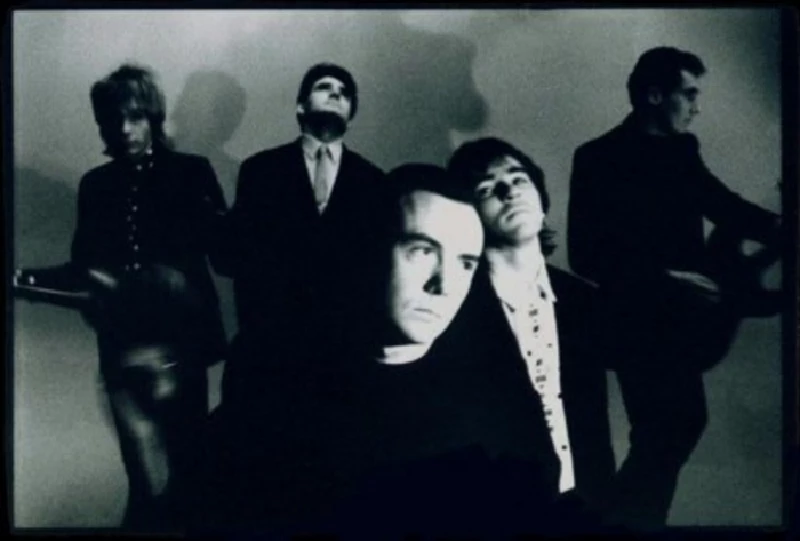
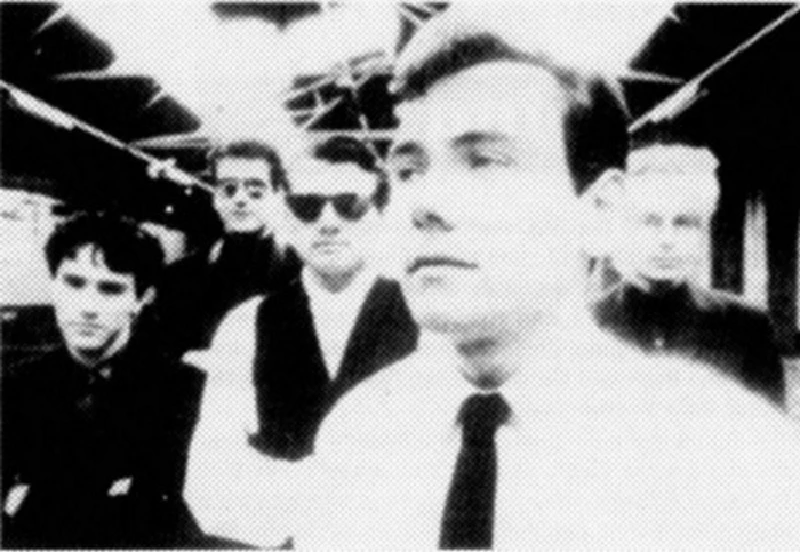
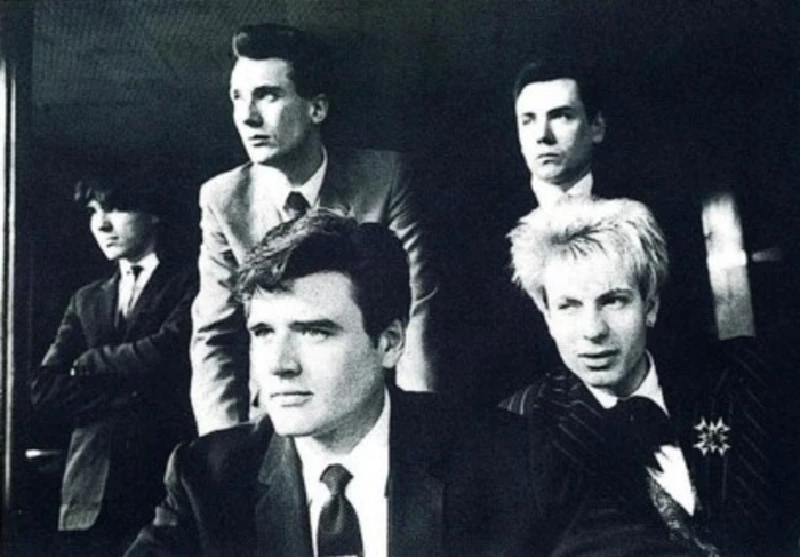
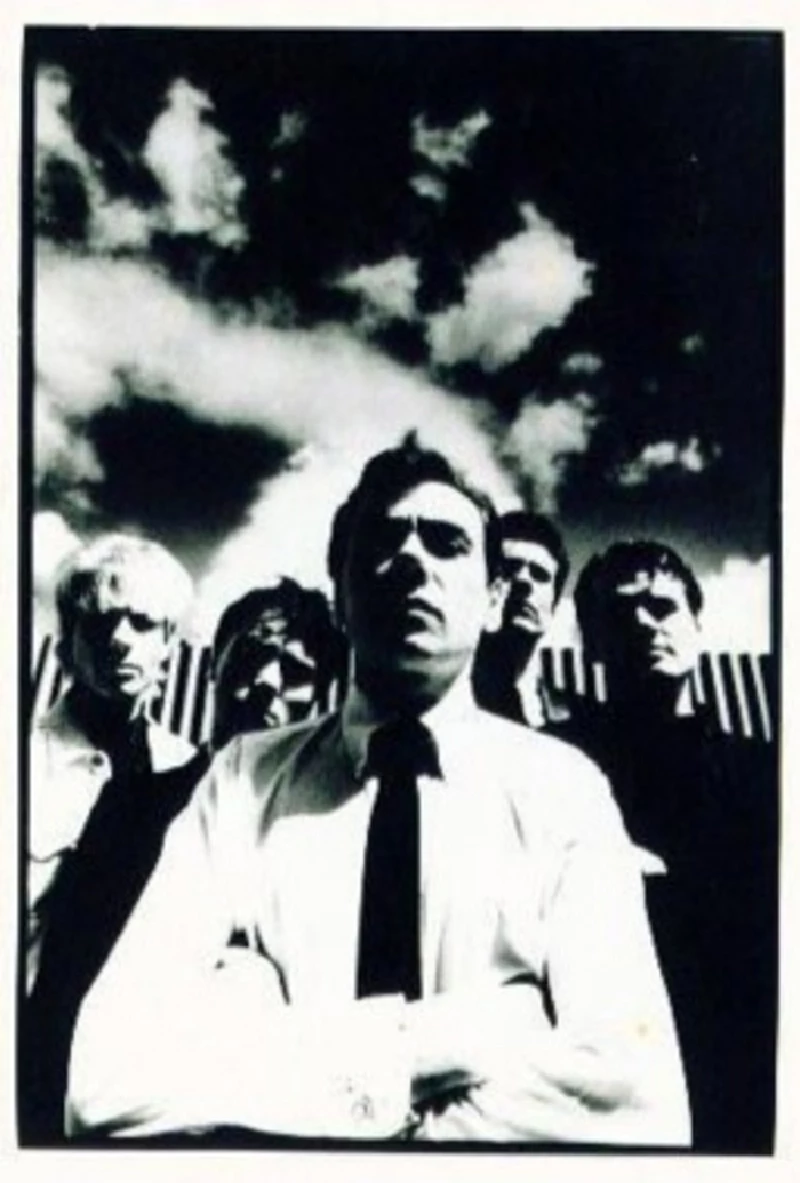
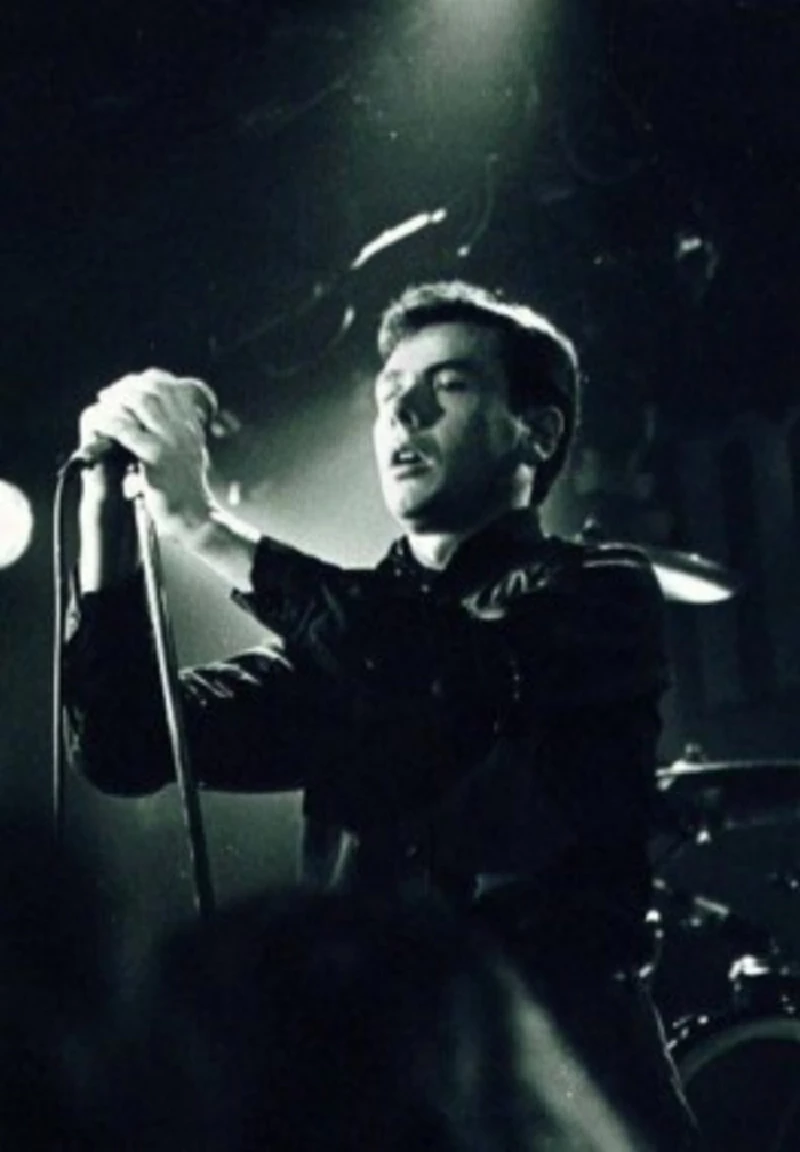
interviews |
|
Interview with Peter Coyne (2022) |
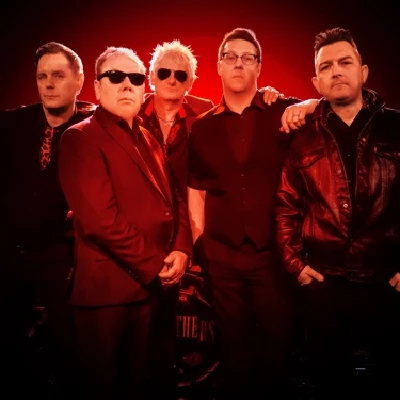
|
| Peter Coyne, the frontman with The Godfathers, speaks to Denzil Watson about their critically acclaimed new album, ‘Alpha, Beta, Gamma, Delta’. |
| Interview (2020) |
| Interview (2017) |
| Interview Part 1 (2013) |
| Interview Part 2 (2013) |
profiles |
|
Godfathers (2011) |
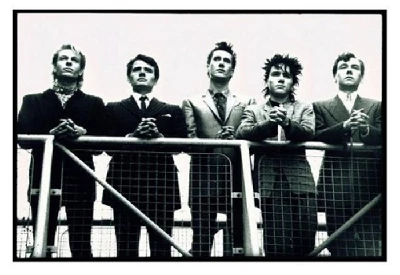
|
| Andrew Carver reflects upon South London punk/rock 'n' roll band the Godfathers first two major label releases, 1988's 'Birth, School, Work, Death' and 1989's 'More Songs about Love and Hate', which have both recently been reissued |
live reviews |
|
Lexington, London, 31/10/2014 |
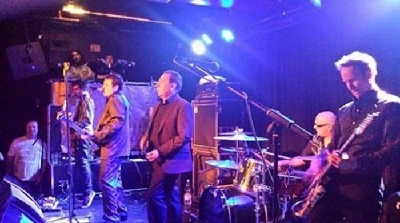
|
| Dastardly watches London-based rock and roll/punk legends the Godfathers unveil their new five-piece line-up in typically blistering form at the Lexington in London |
| Picture House, Edinburgh, 1/3/2013 |
favourite album |
|
The Godfathers (2013) |
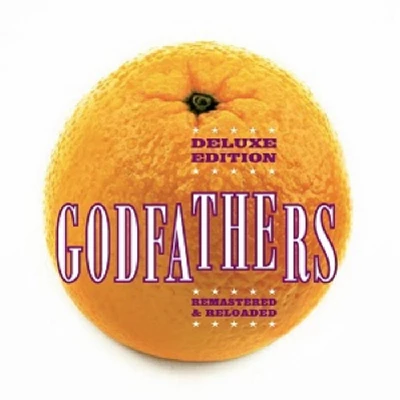
|
| John Clarkson examines South London-formed alternative rock band the Godfathers' eponymous and rarely heard 1993 album, which is about to be re-released for its twentieth anniversary in a double CD edition |
features |
|
Songs about Love and Hate : An Intro (2002) |
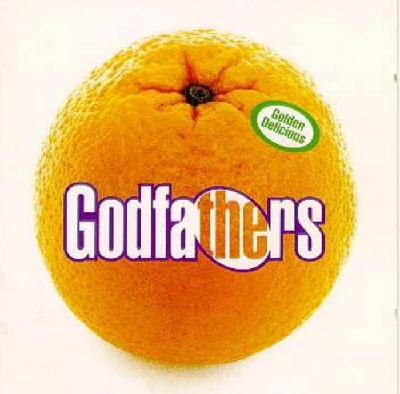
|
| 1990 was spent mainly touring, and working on songs for the next album, and 1991 began optimistically with the group playing their largest ever St Valentine’s Day Massacre at London’s Brixton Academ |
| Songs about Love and Hate : An Intro (2002) |
| Songs about Love and Hate : An Intro (2002) |
soundcloud
reviews |
|
Alpha Beta Gamma Delta (2022) |
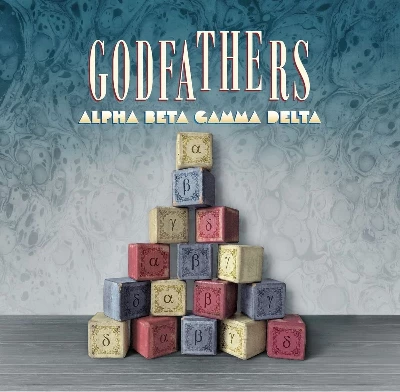
|
| Inventive and richly versatile ninth album from The Godfathers which proves to be a career highlight |
| I'm Not Your Slave/Wild and Free (2020) |
| A Big Bad Beautiful Noise (2017) |
| Jukebox Fury (2013) |
| Shot Live at the 100 Club (2010) |
most viewed articles
current edition
Peter Doherty - Blackheath Halls, Blackheath and Palace Halls, Watford, 18/3/2025 and 21/3/2025Armory Show - Interview with Richard Jobson
Liz Mitchell - Interview
Lauren Mayberry - Photoscapes
Deb Googe and Cara Tivey - Interview
Max Bianco and the BlueHearts - Troubadour, London, 29/3/2025
Garfunkel and Garfunkel Jr. - Interview
Sukie Smith - Interview
Clive Langer - Interview
Maarten Schiethart - Vinyl Stories
previous editions
Heavenly - P.U.N.K. Girl EPBoomtown Rats - Ten Songs That Made Me Love....
Trudie Myerscough-Harris - Interview
Doris Brendel - Interview
Beautiful South - Ten Songs That Made Me Love...
Dwina Gibb - Interview
Pulp - Ten Songs That Made Me Love...
Kay Russell - Interview with Kay Russell
Oasis - Oasis, Earl's Court, London, 1995
Sound - Interview with Bi Marshall Part 1
most viewed reviews
current edition
Davey Woodward - Mumbo in the JumboNigel Stonier - Wolf Notes
Wings - Venus and Mars
Kate Daisy Grant and Nick Pynn - Songs For The Trees
Only Child - Holy Ghosts
Neil Campbell - The Turnaround
Philip Jeays - Victoria
Darkness - Dreams On Toast
Suzanne Vega - Flying With Angels
Charles Ellsworth - Cosmic Cannon Fodder
Pennyblackmusic Regular Contributors
Adrian Janes
Amanda J. Window
Andrew Twambley
Anthony Dhanendran
Benjamin Howarth
Cila Warncke
Daniel Cressey
Darren Aston
Dastardly
Dave Goodwin
Denzil Watson
Dominic B. Simpson
Eoghan Lyng
Fiona Hutchings
Harry Sherriff
Helen Tipping
Jamie Rowland
John Clarkson
Julie Cruickshank
Kimberly Bright
Lisa Torem
Maarten Schiethart